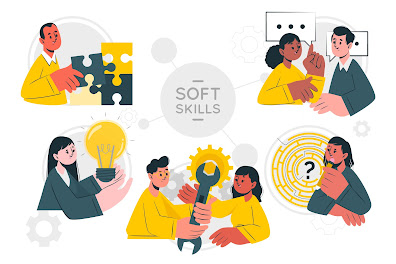Ongoing Professional Development for Assessors in Vocational Education
Introduction:
In the landscape of vocational education, the role of assessors is pivotal in shaping the learning journey of students. As the educational sector continually evolves, assessors must embark on a journey of ongoing professional development to stay abreast of changes, enhance their skills, and contribute effectively to the learning experience. In this blog, we will delve into the ongoing professional development needs of assessors in the vocational education sector, exploring the training, resources, and opportunities available to support their growth.
1. Understanding the Evolving Landscape:
Assessors play a crucial role in evaluating the skills and competencies of vocational education students. To meet the ongoing demands of their roles, assessors must stay informed about changes in curriculum, assessment methodologies, and industry standards. Professional development provides them with the tools to adapt to these changes and ensure they are delivering relevant and up-to-date assessments.
2. Training Programs for Assessors:
Various training programs cater specifically to the professional development needs of assessors in vocational education. These programs cover a spectrum of topics, including assessment strategies, the use of technology in assessments, and the incorporation of inclusive practices. Online and in-person workshops, seminars, and accredited courses are readily available to assessors, providing a structured and comprehensive approach to skill enhancement.
3. Resourceful Online Platforms:
The digital era has brought forth a plethora of online platforms that offer valuable resources for assessors. Websites, forums, and educational platforms provide access to articles, research papers, and case studies that keep assessors abreast of the latest trends and best practices in vocational education assessment. These online resources are accessible, allowing assessors to engage with content at their own pace.
4. Industry Collaboration and Networking:
Professional development isn't limited to formal training; it also involves networking and collaboration within the industry. Assessors can benefit from participating in conferences, workshops, and industry events where they can interact with peers, share experiences, and gain insights into innovative assessment practices. These collaborative opportunities foster a sense of community and enable assessors to learn from each other's experiences.
5. Mentorship Programs:
Mentorship is a valuable aspect of ongoing professional development. Experienced assessors can guide and support their peers, sharing knowledge, providing insights, and offering practical advice. Mentorship programs, whether formal or informal, create a supportive environment where assessors can learn from each other, enhancing their skills and building confidence in their roles.
6. Utilizing Technology for Professional Growth:
In the digital age, technology plays a significant role in education, and assessors can leverage it for their professional development. Online courses, webinars, and e-learning modules provide flexibility for assessors to enhance their skills without disrupting their work schedules. These technological resources offer interactive learning experiences, making professional development more engaging and accessible.
7. Workplace-Based Learning Opportunities:
Many assessors benefit from workplace-based learning opportunities, where they can apply new knowledge and skills directly to their roles. Some organizations offer tailored professional development programs that are aligned with the specific needs and goals of their assessors. This approach ensures that the learning is practical and immediately applicable in their day-to-day assessments.
8. Continuous Improvement and Reflective Practices:
Professional development is not a one-time event but a continuous journey of improvement. Assessors can engage in reflective practices, evaluating their own assessments and seeking feedback from peers and students. This introspective approach allows assessors to identify areas for improvement and tailor their professional development efforts to address specific needs.
9. Accessibility and Inclusivity Training:
Given the diverse nature of vocational education, assessors often work with students from various backgrounds and abilities. Professional development opportunities focusing on accessibility and inclusivity training can empower assessors to create assessment strategies that cater to the diverse needs of students, ensuring a fair and supportive learning environment for all.
10. Professional Associations and Certifications:
Being part of professional associations in the vocational education sector can open doors to various professional development opportunities. These associations often provide access to conferences, publications, and certification programs that enhance the skills and credibility of assessors. Certifications can serve as a tangible recognition of an assessor's commitment to continuous improvement.
Conclusion
In the ever-evolving landscape of vocational education, the role of assessors is paramount. Ongoing professional development is not just a necessity but a pathway to excellence in assessment practices. The availability of diverse training programs, online resources, industry collaboration, mentorship opportunities, and workplace-based learning ensures that assessors have a rich tapestry of options to enhance their skills and contribute effectively to the success of vocational education. By investing in the professional development of assessors, we contribute to the growth and vibrancy of the vocational education sector, ensuring that it remains dynamic, relevant, and responsive to the needs of learners and industries alike.

.jpg)


Comments
Post a Comment